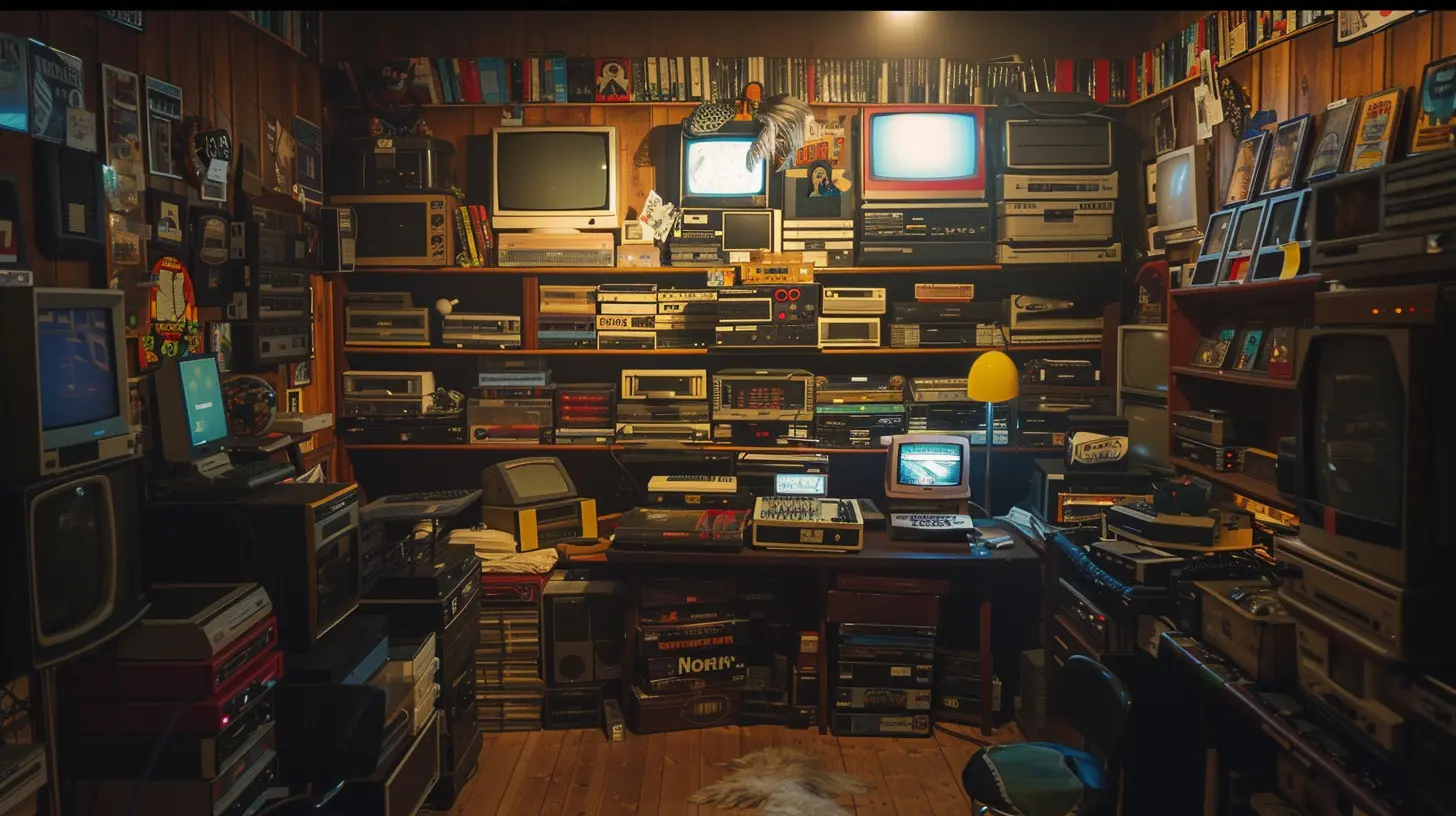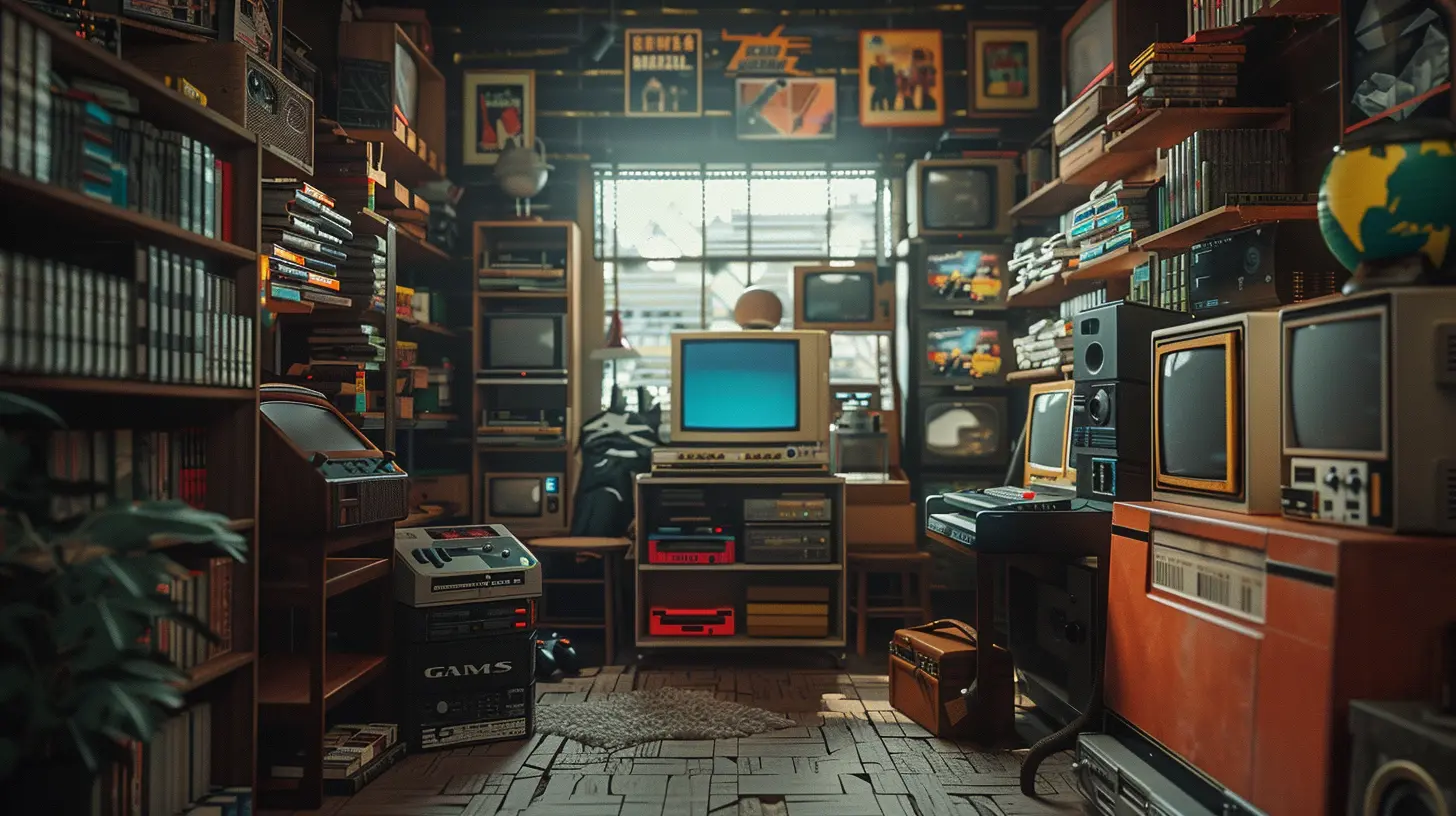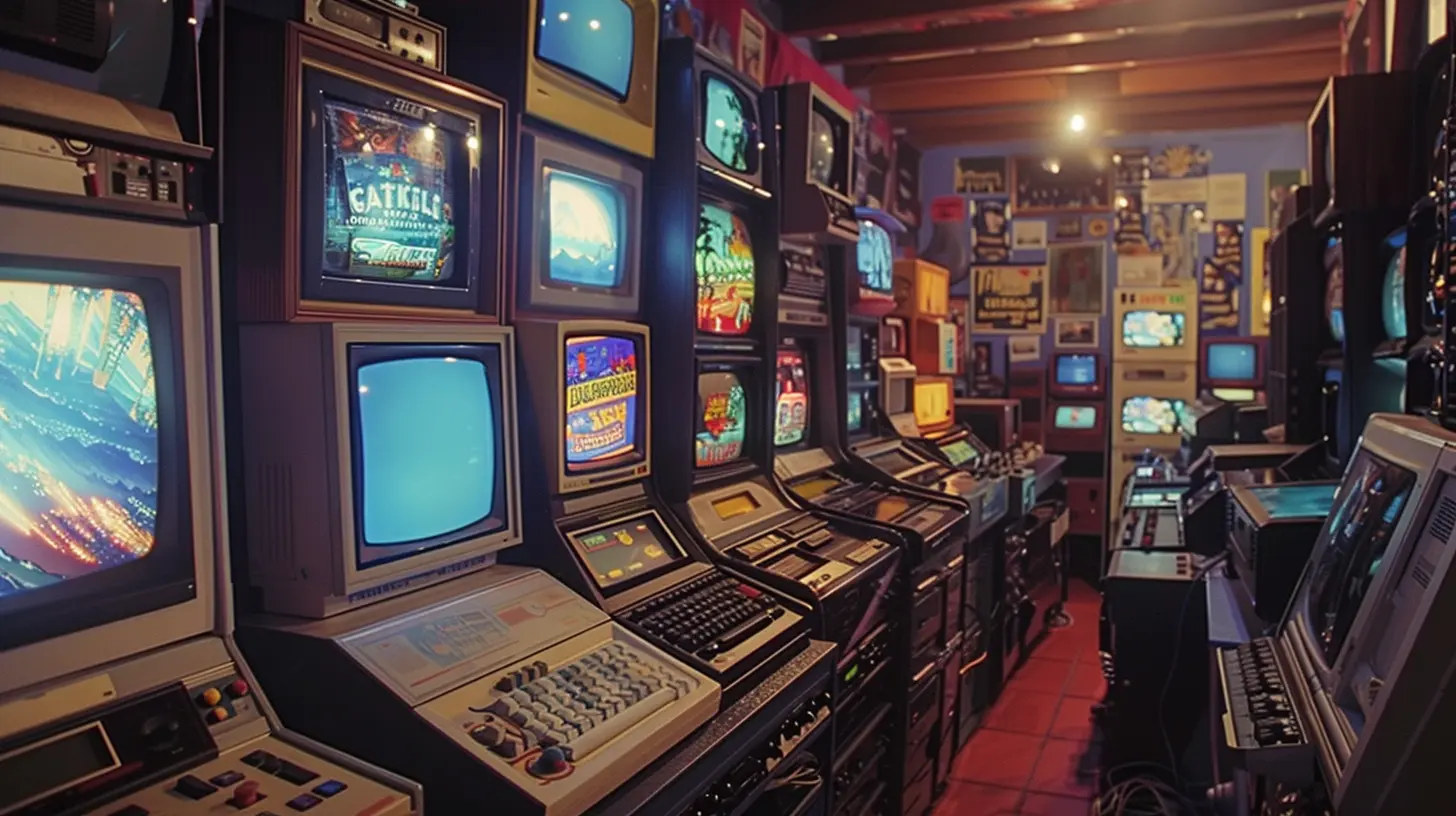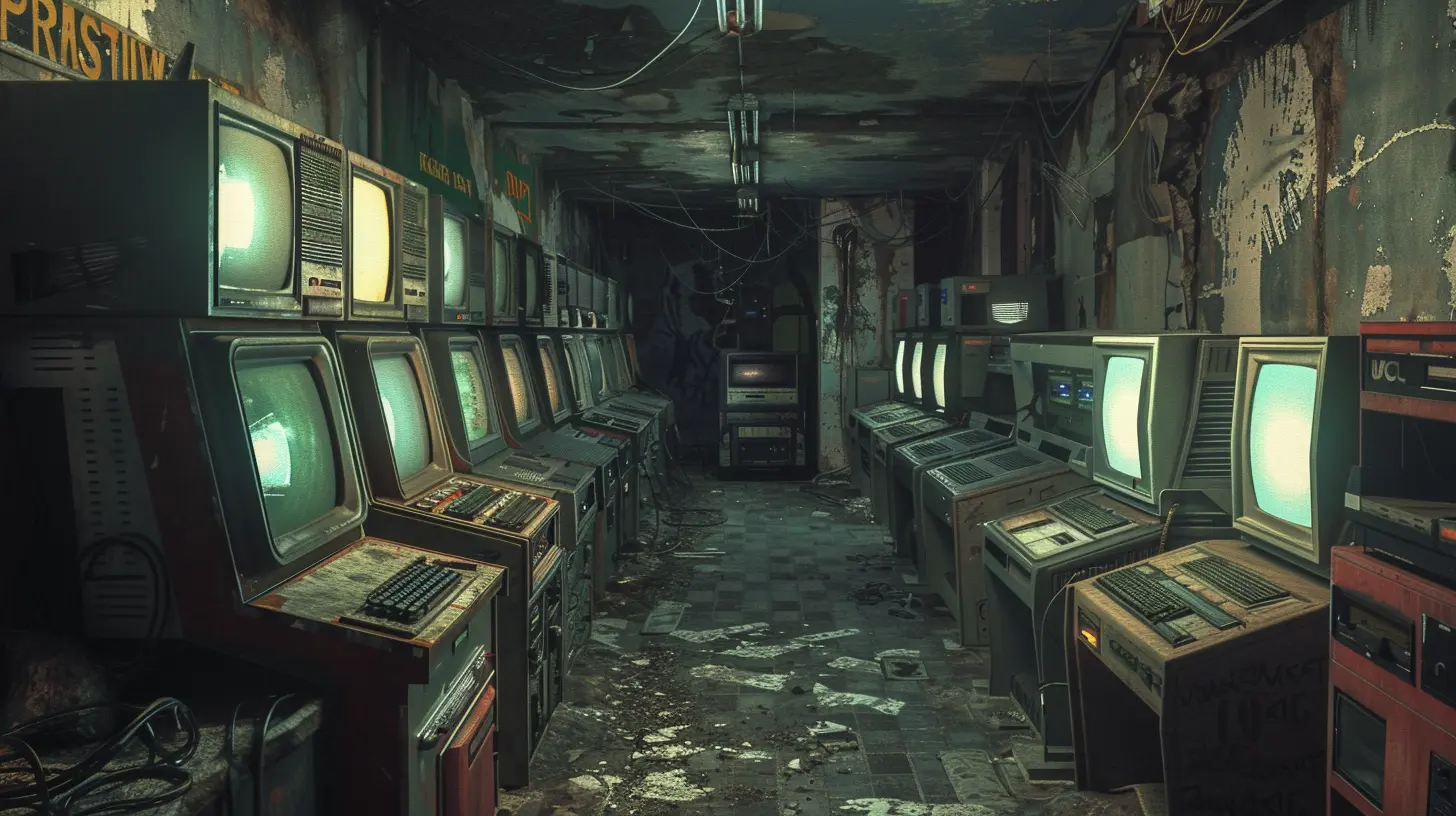How Remasters Preserve Gaming History
2 September 2025
Alright, let's talk about something that doesn’t get nearly enough respect in the gaming world—remasters. You know, those updated versions of classic games with sleeker graphics, smoother framerates, and sometimes even bonus content. Some people roll their eyes and complain about them being cash grabs. But hold up... what if I told you remasters are actually doing something incredibly important?
Yes, remasters aren’t just shiny nostalgia trips. They’re digital time capsules—guardians of our digital playgrounds. In a world where physical media is dying and retro consoles are becoming museum relics, remasters are often the only bridge we have to the past. So, let’s unpack why these underappreciated releases matter way more than most gamers realize.

Gaming Is Evolving Too Fast
Let’s kick this off with something obvious: technology moves at lightning speed. The console you loved just five years ago? Probably collecting dust in a closet. Games aren’t like books or movies—you can’t always just pop in a cartridge or disc and expect it to work. Compatibility issues, server shutdowns, and dead hardware make old games hard to access.Imagine if classic literature vanished every time a new printing press came along. That’s basically what happens in gaming. Games disappear. But remasters? They fight back against that.

Remasters Are The Lifeboats Of Gaming
When a developer remasters a game, they’re not just slapping on prettier textures and calling it a day. They’re giving a game a second life. Think of remasters as the revival of old legends—like rolling back into your hometown years later and finding your favorite childhood arcade magically still running.Take Shadow of the Colossus, for example. That PS2 gem was a technical marvel for its time, but running it today without a remaster? A complete headache. The remastered version on PS4? Gorgeous, accessible, and even better in many ways. It preserves the soul of the original while updating it for new generations. That is powerful.

They Keep Gaming’s Cultural DNA Alive
Let’s get real: gaming has culture. It has history and milestones just like film, music, or literature. Games like Final Fantasy VII, Metal Gear Solid, and The Legend of Zelda: Ocarina of Time shaped entire generations of gamers. You can’t talk about the evolution of storytelling in games without mentioning these titles.If these games became unplayable due to old hardware or outdated controls, their legacy would fade. Remasters make sure that never happens. They say, "Hey, this game changed everything—here’s your chance to experience it the way we did back in the day, just with fewer jagged edges and more polish."

Nostalgia Isn’t A Dirty Word
Let’s squash this idea that nostalgia is a bad thing. It’s not just about rose-colored glasses. It’s about emotion, memory, and connection. When you boot up a remastered version of a game you played as a kid, it’s like finding an old photo album—except now, the images are in 4K and have HDR lighting.Remasters allow us to reconnect not just with the games themselves, but with who we were when we played them. And that emotional anchor? That’s something only games can do in such an immersive way.
Introducing Classics To New Gamers
Not everyone has the luxury of growing up with a SNES, PlayStation 1, or Sega Genesis. There's a whole wave of younger gamers who missed these systems entirely. Are we just supposed to let them miss out on Chrono Trigger, Resident Evil 2, or Tony Hawk's Pro Skater? Hell no.Remasters introduce timeless experiences to new audiences. They take a historical artifact and hand it over like, “Here kid, don’t say we never gave you anything.” It’s like replaying The Godfather for someone who’s never seen it—and realizing it still holds up decades later.
Accessibility And Quality Of Life Improvements
Let’s not pretend every classic game was flawless. Many of them had bugs, clunky controls, or god-awful camera angles. Remasters give devs a chance to fix that. Without destroying the essence of the game, they make smart tweaks: better UI, autosaves, reworked controls, maybe even a skip button for long cutscenes (looking at you, Kingdom Hearts).These are the kinds of modern touches that make those old masterpieces not just playable, but enjoyable, by today’s standards. Accessibility matters, and remasters quietly do a lot to make sure more people can experience the classics comfortably.
Gaming’s Version of Film Restoration
Let’s put it in Hollywood terms. Ever seen an old movie that was restored from film to 4K Ultra HD? It’s not just about the resolution—it’s about preserving something historically important for future generations. Gaming deserves the same treatment.Mass Effect Legendary Edition is a perfect example. The original trilogy was groundbreaking, but inconsistent in design and graphics. The remaster unified all three games, polished them visually, and made them feel cohesive. That’s not just an upgrade—it’s a preservation effort.
They’re Not Remakes—And That’s A Good Thing
Now, hold up… there’s a big difference between remakes and remasters. Remakes (like the Resident Evil 2 remake) reinvent the game from the ground up. Remasters aim to keep the original experience intact while ironing out the rough parts.Sounds simple, but it’s actually hard as hell to pull off. Keeping the gameplay and spirit intact without letting it feel outdated? That takes finesse. A great remaster walks a tightrope between honoring the past and embracing the present.
Some Games Only Exist Because They Were Remastered
Here's a hard truth: some games would’ve been lost forever without remasters. Take Grim Fandango. Originally released in 1998, it was one of the most unique adventure games of its time—but quickly became unplayable as newer Windows versions rolled out. The 2015 remaster didn’t just resurrect the game; it also included director commentary, improved lighting, and controller support.It's like digging up a buried treasure—except now it’s cleaned, polished, and put on display with a spotlight.
Remasters Encourage Developers to Respect Their Legacy
Let’s give props to the studios that understand the weight of their own history. When developers remaster their old games, it sends a message: “We care about what we made back then.” It’s a love letter to the fans—and to themselves.It also pressures other studios to take their own legacies more seriously. You can’t have Bluepoint Games crush a Demon’s Souls remaster without making other publishers think, “Damn, maybe we should do something with our old catalogue.”
Cash Grabs Or Cultural Preservation?
Now, I know what you’re thinking: “But what about when remasters feel lazy or overpriced?”Fair point. Not all remasters are created equal. Some are barely upgraded ports slapped with a $40 price tag. But here’s the thing—just because some are mediocre doesn’t mean the concept is flawed. It just means gamers rightly expect more.
When done right, remasters are so much more than cash grabs—they're cultural preservation. They’re passion projects. And yeah, they make money too, but that’s what keeps the lights on at the studios. It’s a win-win when it's done with heart.
The Underground Impact: Mods And Fan Projects
Let’s not forget the gaming community itself. Some of the best remasters started as fan projects. Ever heard of Black Mesa? It’s a fan-built remake of the original Half-Life, and it ended up being so good, Valve gave it their blessing and sold it on Steam.Mods, ROM hacks, and emulations? They’ve preserved countless titles long before big studios took notice. Now, developers are catching on. They're working with communities, offering remasters that build on what fans have been doing for decades. That synergy? It’s changing the game—literally.
Paving The Way For Future Game Preservation
Here’s the real kicker: as we move into an all-digital future, remasters are going to be the backbone of game preservation. No discs. No cartridges. Just code and cloud servers. If we don’t actively remaster and re-release games, we risk losing entire generations of experiences.Think about it—how many mobile games from the early 2000s are now completely gone? How many browser-based Flash games have vanished forever? Without preservation, our digital past is just dust in the wind.
Final Thoughts: Remasters Matter—More Than You Think
So the next time someone scoffs at a game remaster, hit pause and think. That remaster might be the only way someone gets to play a classic. It might be the only record of a pivotal moment in gaming history. Far from being lazy cash-ins, good remasters are the unsung heroes of gaming culture.They're the bridge between generations, the lifelines for classics, and the love letters from developers to fans. In a world where digital media can disappear overnight, remasters don’t just matter—they’re essential.
So yeah, maybe remasters aren’t trendy or groundbreaking. But they’re damn important. And we should start treating them like it.
all images in this post were generated using AI tools
Category:
Remastered GamesAuthor:

Brianna Reyes
Discussion
rate this article
1 comments
Mary Mahoney
Remasters enrich nostalgia while updating gameplay.
September 11, 2025 at 4:39 AM

Brianna Reyes
Absolutely! Remasters not only evoke nostalgia but also enhance gameplay, ensuring that classic titles remain accessible and relevant to new audiences while preserving their historical significance.


